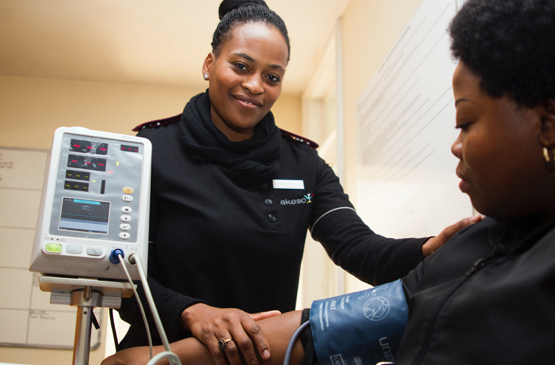Support Your Spartan
- Home
- Private: Family & Supporters Portal
- Support Your Spartan
Support Your Spartan
The NSSC is here to help students succeed at Michigan State University. We offer a wide range of resources that your students can access at any time.
Academic Preparation

Advisors can help Spartan students in many ways. From identifying skillsets to recommending tutors and programs to help them succeed, academic advisors can be a student’s life jacket during a difficult, confusing time. They may even recommend which majors may be a good fit for the student, as well as which ones they may want to avoid. Your student can meet with NSSC Exploratory Advisor/Coach in their Neighborhood Engagement Center or they can meet with their college advisor. To set up an appointment go to https://nssc.msu.edu/exploratory-pref-major
The Collaborative Learning Center (CLC) can help students refine the skills that they need to succeed in college. This could include receiving math or writing tutoring, learning time management, and developing effective test-taking skills. Best of all, these services are free! Learn more about the CLC at https://nssc.msu.edu/clc/
The Engagement Centers are unique spaces located in each neighborhood and serve as the main access points to important resources. Students can find resources such as NSSC advisors, tutors, help rooms, health practitioners, math learning center, writing center, and other resources that can help your students navigate through their college career. Check out our online engagement center at https://nssc.msu.edu/oec/
We are committed to supporting students by providing resources that are essential to a student’s academic success. To be successful, students must have access to the right equipment, internet, security and learning platforms. To further support your student’s learning, we have a series of podcasts, workshops, and print materials related to studying skills, behaviors, and techniques for online and in person learning. Check it out at https://remote.msu.edu/learning/index.html
Books and Study Materials

Check out MSU Libraries. The libraries have a ton of services available to students. The MSU Libraries are partners in the teaching, learning, research, and engagement missions of Michigan State University. They help your student develop critical thinking skills necessary to navigate an increasingly complicated information landscape, skills which will benefit your student’s academic, personal, and eventually professional lives.
The Michigan State University (MSU) Libraries recognize that the high cost of textbooks is a burden on students. The Affordable Textbook Program is intended to help alleviate the high costs that MSU students face when paying for their textbooks and to ensure students have access to their textbooks so they can succeed in class.
These formats provide access to information and knowledge for persons with print-related disabilities including blindness, visual impairment, learning disabilities, and certain motor disabilities. Such services are provided at no cost to students registered with the Resource Center for Persons with Disabilities (RCPD) with print-related disabilities, who are both deemed eligible for alternative formats and using the material in MSU credit-granting courses.
We are here to help your student learn how to learn online. Learn more at https://remote.msu.edu/learning/index.html
Student Housing

We want to help you make MSU your student’s home. We know students want great food, friends and fun. Residence Education and Housing Services will help with student housing, but they also deal with any housing-related issues students may have. https://liveon.msu.edu/
Check out the resources listed below:
- College Life East Lansing http://www.collegelifeel.msu.edu/
- Off Campus Housing Services https://offcampushousing.msu.edu/
- Off Campus Housing Search/Resources https://offcampushousing.msu.edu/resource
- MSU Student Housing Co-op msu.coop
Transportation

The Capital Area Transportation Authority (CATA) bus system is free for all students during fall and spring semesters along all on-campus routes. These routes serve all university apartments, residence halls, commuter lots, and main campus facilities. Most on-campus routes run until 2:30 a.m. after which the Night Owl service provides late night transportation at a discounted student rate. In addition to the free on-campus routes, there are also routes that extend to the surrounding off-campus areas of East Lansing, Lansing, Okemos and Haslett. For off-campus routes, students can pay per ride or purchase passes.
MSU offers seven Zipcar parking locations on campus. Students 18 years and older, including drivers with an international license, can rent a car to use by the hour or day.
Students wishing to bring their own car to campus must meet these criteria:
- An MSU student not residing on campus property may register a vehicle as a commuter.
- An MSU student who resides on campus must have at least 28 credits in order to register their vehicle to park on campus. These 28 credits can be AP credits earned while in high school, credits transferred from another 2- or 4-year institution or earned while at MSU.
- When eligible, students may purchase a parking permit on campus and register their vehicle through the MSU Police Department.
Safe ride is a late night transportation service provided by members of the Michigan State University community as a safe and free alternative to walking home alone after dark. http://asmsu.msu.edu/home/services/safe-ride/
With more than half of its roads equipped with bike lanes and more than 20,000 bicycle parking spaces, MSU has installed several bike repair stations across campus, providing cyclists with a place to fix flats and make minor adjustments. MSU’s Bikes Service Centeralso offers a range of services for individuals looking to rent, repair, buy, or equip a bike. Students who bring a bike to campus must obtain a free bicycle permit from the MSU Police Department.
Mopeds are another popular form of transportation on campus. MSU has numerous moped-designated parking spaces across campus for your student’s convenience. In order to use a moped on campus, your student must purchase a parking permit after having registered your moped with the Secretary of State Office. One advantage over cars is that MSU allows students to use mopeds starting their first year on campus. Students wishing to drive a car on campus must either be a commuter student or in at least their second year at MSU. More information about mopeds can be found on the MSU police website.
- Gotcha! E-scooters are conveniently placed around campus and East Lansing to be used for a fee.
Transportation

The Capital Area Transportation Authority (CATA) bus system is free for all students during fall and spring semesters along all on-campus routes. These routes serve all university apartments, residence halls, commuter lots, and main campus facilities. Most on-campus routes run until 2:30 a.m. after which the Night Owl service provides late night transportation at a discounted student rate. In addition to the free on-campus routes, there are also routes that extend to the surrounding off-campus areas of East Lansing, Lansing, Okemos and Haslett. For off-campus routes, students can pay per ride or purchase passes.
MSU offers seven Zipcar parking locations on campus. Students 18 years and older, including drivers with an international license, can rent a car to use by the hour or day.
Students wishing to bring their own car to campus must meet these criteria:
- An MSU student not residing on campus property may register a vehicle as a commuter.
- An MSU student who resides on campus must have at least 28 credits in order to register their vehicle to park on campus. These 28 credits can be AP credits earned while in high school, credits transferred from another 2- or 4-year institution or earned while at MSU.
- When eligible, students may purchase a parking permit on campus and register their vehicle through the MSU Police Department.
Safe ride is a late night transportation service provided by members of the Michigan State University community as a safe and free alternative to walking home alone after dark. http://asmsu.msu.edu/home/services/safe-ride/
With more than half of its roads equipped with bike lanes and more than 20,000 bicycle parking spaces, MSU has installed several bike repair stations across campus, providing cyclists with a place to fix flats and make minor adjustments. MSU’s Bikes Service Centeralso offers a range of services for individuals looking to rent, repair, buy, or equip a bike. Students who bring a bike to campus must obtain a free bicycle permit from the MSU Police Department.
Mopeds are another popular form of transportation on campus. MSU has numerous moped-designated parking spaces across campus for your student’s convenience. In order to use a moped on campus, your student must purchase a parking permit after having registered your moped with the Secretary of State Office. One advantage over cars is that MSU allows students to use mopeds starting their first year on campus. Students wishing to drive a car on campus must either be a commuter student or in at least their second year at MSU. More information about mopeds can be found on the MSU police website.
- Gotcha! E-scooters are conveniently placed around campus and East Lansing to be used for a fee.
Medical & Health Services

Students enrolled in MSU classes are eligible for three prepaid medical office visits each academic year with MSU Student Health Services.
All MSU students are eligible to enroll in the MSU-sponsored student health plan through Blue Care Network (BCN), a comprehensive plan with low out-of-pocket costs on-campus, plus nationwide coverage. For more information, follow this link: https://hr.msu.edu/benefits/students/health/
Another great service MSU offers is free counseling. CAPS (Counseling and Psychiatric Services) connects with students to talk about their concerns. Students can ask questions and the CAPS Connect Counselor will answer, share appropriate resources, or provide support around that issue. Either way, your student can connect with a counselor, which could be a huge help especially during stressful times.
Research has shown a positive relationship between academic success and recreational sports participation and psychosocial/physical health indicators. Check out the facilities available to your student as well as fitness classes that are available at https://recsports.msu.edu/about/index.html
